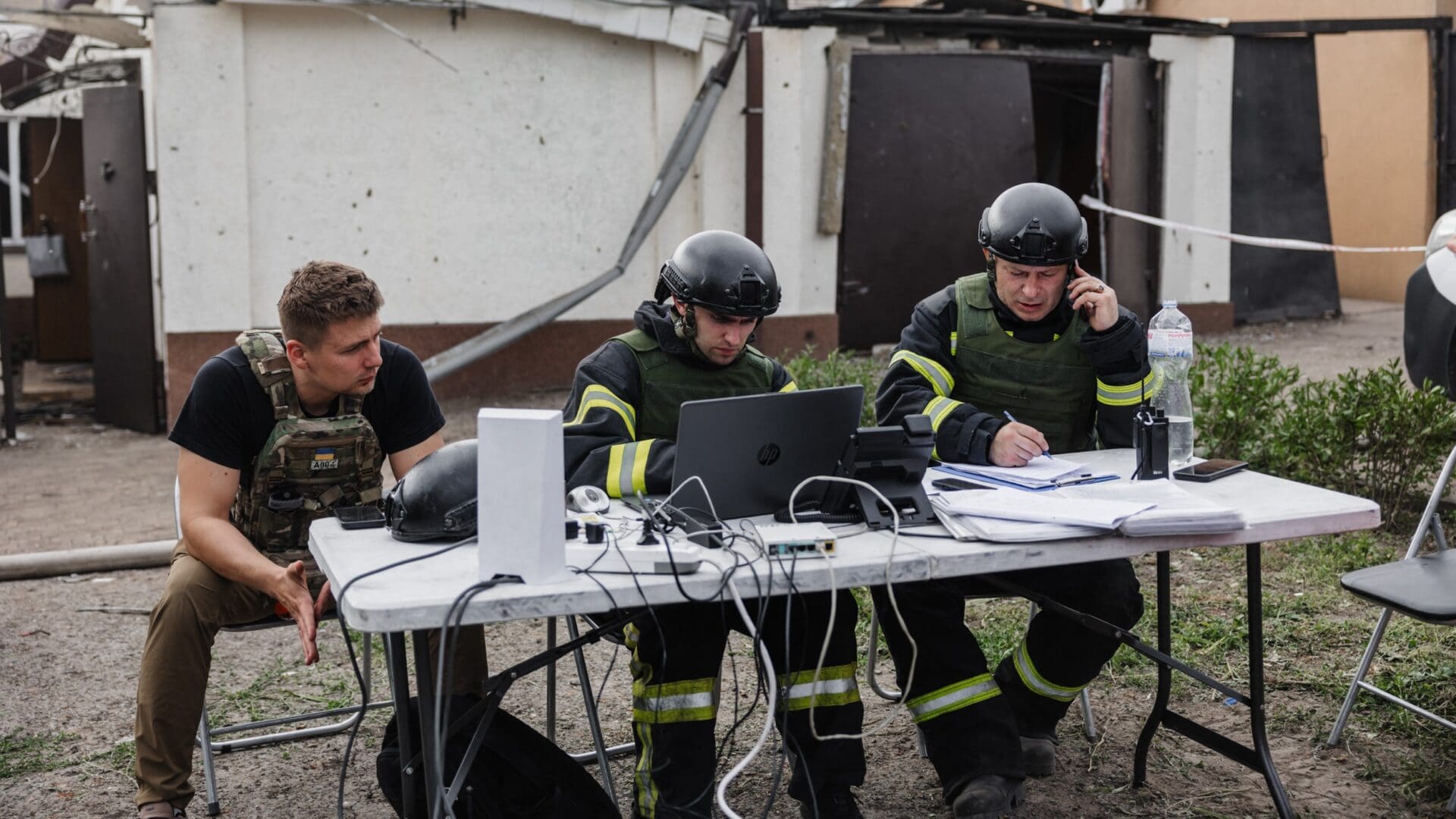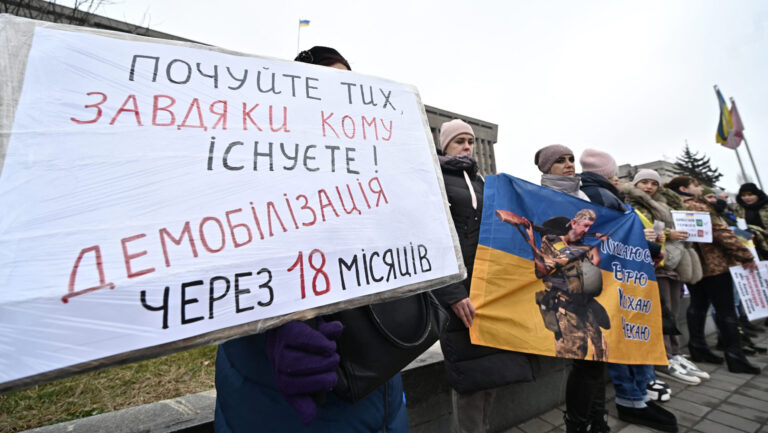The Russo-Ukrainian war is reaching ever more serious dimensions. Ukraine was forced to impose power shutdowns as Russia attacked the energy grid on Saturday and Sunday last week. Except for three regions, all parts of Ukraine experienced power outages. Russian forces attacked ten locations at the border of the Sumy area on Sunday night. On Saturday, drones and missiles attacked energy targets, injuring at least 19 people. Shutdowns are still in effect everywhere except the three regions.
According to Ukraine’s state-owned power grid operator, Ukrenergo, the shutdowns affected both industrial and household consumers. The most significant attacks recently were an airstrike in April that damaged Kyiv’s largest thermal power plant and a substantial attack on power generator and transmission facilities in several regions on 8 May. Following the Saturday strike, the Ukrainian air force announced on Sunday that their air defence shot down all 25 drones being launched overnight.
Russia’s new offensive targets mainly the Kharkiv region in the north, and it also aims to break through the Ukrainian defence lines in Donetsk in the southern area while also launching attacks in the Sumy and Chernikhiv regions in the north. Earlier this year, the Ukrainian Minister of Environmental Protection and Natural Resources, Ruslan Strilets said that the environmental costs of the Russian war had already exceeded HUF 25 trillion. In Kyiv, 3,600 cases of environmental damage have been registered so far.
Ukrainian President Volodymyr Zelenskyy, visiting Singapore on Saturday and speaking at the Shangri-La security conference,
accused China of helping Russia undermine the upcoming international peace summit
to be held from 15 June at a resort near Lake Lucerne in Central Switzerland that should help end the war in Ukraine. China signalled at the end of May that it would not participate in the conference, justifying its decision by the fact that Russia will not be present at the meeting either, since Moscow had not been invited to the event.
The organizer of the conference, the Swiss government hopes that the negotiations will pave the way for the peace process in Ukraine. According to China, Russia and Ukraine should both be there at the negotiating table and all proposals should be discussed fairly.
Beijing maintains close economic and diplomatic relations with Russia, and since the outbreak of the war in Ukraine in February 2022, it has not once condemned Moscow for attacking Ukraine but offered its help in mediating during peace talks.
In Singapore Zelenskyy also highlighted that Russia is using Chinese influence and diplomats in the region to disrupt the peace summit. He also noted that it is regrettable that a large, independent, strong country like China is an asset in Putin’s hands.
Zelensky also announced that more than 100 countries had confirmed their participation in the summit.
In recent weeks, Kyiv asked Washington to change its policy after Russian forces making significant advances. On 2 June, John Kirby, the National Security Adviser of the White House, confirmed that at the end of May President Joe Biden allowed Ukraine to use some of the weapons provided by the US for strikes in Russia, thereby relieving Russia’s mounting pressure on Kharkiv.
This permission is only limited to the Kharkiv region and specific targets and distances. For instance, Ukraine cannot use these weapons against civilian infrastructure.
For the time being, the US government is firm in its stance that Ukraine should not use its most fearsome military weapon to date, long-range missiles known as ATACMS, which can reach targets located up to 300 kilometres away.
Ukraine continues to urge its Western allies to lift restrictions on the use of Western weapons since Moscow continues to have an unfair tactical advantage. In response to the US permission, Berlin announced that it would give a similar permission regarding the weapons they had provided.
At NATO’s parliamentary assembly meeting in Sofia last week Secretary General Jens Stoltenberg asked NATO member states to lift certain restrictions on military aid to Ukraine. He emphasized that the Russian attacks would be impossible for the Ukrainian army to withstand without the increased support of the West. Thus far, the NATO Secretary General withheld NATO member states from giving their consent to the use of their weapons in Russia because the Russian leadership may consider it as an intervention. Since the beginning of the war in Ukraine, Kyiv’s Western partners have also guaranteed assistance to the country on the condition that Kyiv does not strike Russian territory. However, in recent weeks, Russian forces gained a significant advantage, especially in the northern part of the Eastern Ukrainian front.
There is also a severe threat to Ukraine’s second-largest city, Kharkiv, as the Russian army pushes closer and closer to Kramatorsk.
These developments are now obviously seen by the US and German leaders as potentially determining the war’s outcome. The British government came to this conclusion earlier: during his visit to Kyiv in early May, British Foreign Secretary David Cameron announced that Ukraine has the right to use weapons supplied by the UK. Cameron has also promised £3bn a year in military aid to Ukraine for as long as needed. Before this British move, several countries, such as Finland and Latvia, had already confirmed that they support Ukraine’s right to use the weapons they supplied during the strikes and fighting in Russia.
Despite this significant support, the Russian military industry seems to be still superior in terms of quantities. According to reports, five Russian responses are received for every shot fired by Ukraine. In addition, Ukraine’s Western allies produce artillery ammunition not only more expensively but at a much slower rate than Russia. According to predictions, in 2024, Russia will be able to produce 4.5 million artillery shells, while the EU and the US together only about 1.3 million. Compared to a few months ago, the Ukrainian military is currently better off regarding ammunition supplies, but this is not a substantive advantage in terms of the overall picture of the war. On the one hand, stocks are already limited, and on the other hand, Russians act more and more cruelly in Ukraine, as has been shown by recent events. Ukraine is definitely in trouble, and there is no turning of the tide in sight.
Related articles:








